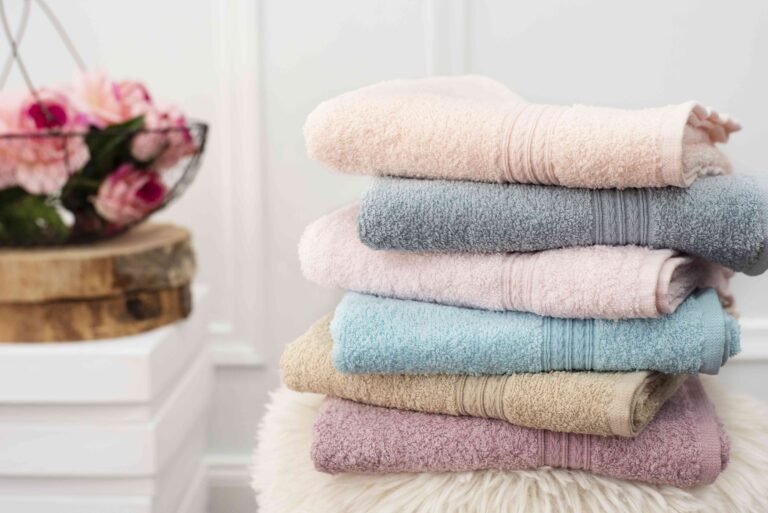:max_bytes(150000):strip_icc():format(jpeg)/GettyImages-1139717201-d62abbcc4c2044b2a1191ff602032e97.jpg)
There’s nothing more luxurious than the feel of brand new towels. Whether you’re upgrading from old, wrinkled towels or just looking for a change of aesthetic, new towels bring cozy luxury, and unfortunately, a lot of bacteria.
If you’re like us, we know you’re probably eager to enjoy your new towels, but after talking to the experts, it seems that pre-washing your towels might be to your advantage.
Meet the expert
- Tucker Hyacinth is the Owner & CEO of Laundry Basket, LLC serving the Maryland, DC and Northern Virginia areas.
- Ocean Truck is the Owner of Coco Laundry in Long Beach, California.
Should you wash towels first?
While you might be thinking, “these towels are new, surely they’re safe to use!” our experts agree that washing them in the washing machine first is a great idea.
“Even if brand new towels look fine straight from the store, they can still harbor dust, particles, and bacteria. This applies to all types of towels: bath towels, hand towels, and kitchen towels,” Tucker says. “A quick wash will remove any chemicals that may have been left on them from the manufacturer and any particles from the store that may have stuck to them.”
Even if your towels aren’t made with chemicals or special finishes, you should still wash them to remove other contaminants and because so many workers’ hands — from factory workers, shipping clerks, store employees, even customers — may have touched the fabric before packaging.
Want more cleaning and organizing tips? Sign up for our free daily newsletter for the latest tips, expert advice, and more!
How to wash and dry towels properly
While we’ve established that it’s safe to wash all new towels before use, our experts say there are a few changes to make when you first wash colored towels versus white or light-colored towels.
“According to the textile care experts at Tide, washing colored towels separately the first time can help prevent fading and keep the towels’ colors vibrant,” says Van. “Many quality colored towels are pre-treated or pre-washed to minimize fading in subsequent washes, but washing them separately initially is still a good practice.”
If you don’t have enough new colored towels for a complete wash cycle, consider adjusting the water level of your washing machine to match the load or consider adding the towels to a mix of other dark-colored linens or items.
When it comes to washing towels, our experts say no special products are needed to wash towels, but there are a few extras you can add to give them an extra clean.
“Regular detergents are fine for towels, but use about half the recommended amount to avoid residue buildup,” Tucker says. “Adding ½ to 1 cup of white vinegar during the rinse cycle helps remove odors and residue, leaving towels softer. For white towels, use chlorine or color-safe bleach to remove stains.”
Van says he prefers detergents that don’t contain dyes or fragrances because he believes they help preserve the quality of the fabric, thanks to the absorbency and softness of the towels over time.
To preserve the fibers of your towels and keep them soft for as long as possible, Tucker recommends running the dryer on medium heat and removing towels from the dryer as soon as possible to avoid mold or musty odors.
Additional expert tips for towel maintenance
- We hate to say it, but that favorite fabric softener you’ve always loved? Van says it’s best not to add it to your towels along with detergent. “While they may make towels soft at first, fabric softeners leave behind a waxy residue that reduces the absorbency of towels over time. This residue can also make towels less breathable and less effective at drying.”
- Store towels in a dry, well-ventilated place to avoid moisture build-up that leads to mold.
- Wash bath and face towels weekly or at least after every three to four uses.
